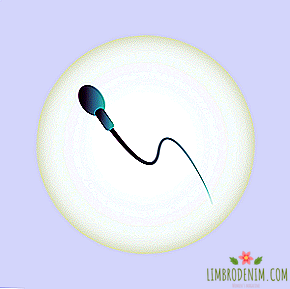Civil activist Anastasia Karimova about favorite books
IN BACKGROUND "BOOK SHELF" we ask journalists, writers, scholars, curators, and other heroines about their literary preferences and publications, which occupy an important place in their bookcase. Today, civic activist, press secretary of the anti-corruption center of Transparency International Russia and the creator of the publicly "Not Mars and not Venus" Anastasia Karimova share their stories about their favorite books.

 My dad bought and swallowed books in huge quantities - I don’t know if he was learning speed reading somewhere, but he read very quickly, greedily and a lot. He was also a great traveler - he visited 150 countries. Perhaps this is where my love for adventure literature as a child comes from: I could not tear myself away from Jules Verne even while eating. I remember how with one hand I scooped the soup with a spoon, and with the other I turned the pages “In the Land of Furs”.
My dad bought and swallowed books in huge quantities - I don’t know if he was learning speed reading somewhere, but he read very quickly, greedily and a lot. He was also a great traveler - he visited 150 countries. Perhaps this is where my love for adventure literature as a child comes from: I could not tear myself away from Jules Verne even while eating. I remember how with one hand I scooped the soup with a spoon, and with the other I turned the pages “In the Land of Furs”.
Mom has a librarian education, for some time she worked in the children's library in the recreation center ZIL. Mom talked about how hard it was during her youth in the USSR to get good books. She gave me some books that her friends gave her many years ago, and I understood their value: in Brezhnev times, a good foreign book was a cool gift. During my school years, I became interested in equestrian sports, dreamed of getting a veterinary education and was practically in love with James Heriot, Bernard Grzimek and Gerald Durrell.
In the ninth grade, I changed my mind about becoming a veterinarian (my relationship with biology was unimportant at school) and went, on the advice of my stepfather, to the School of the Young Journalist at the Journal of the Moscow State University. At the same time, she became interested in history, politics, read out by Remark and Solzhenitsyn, then the books of Tregubova and Shenderovich came into my hands from other politicized teenage friends. Parents wrote out "Flame", I read it from cover to cover and even wrote letters to the editor (they, horror of horrors, were published a couple of times). At breakfast, my stepfather often quoted columns from Gazety.ru.
All this led to the fact that in the eleventh grade I became an opposition activist, then I entered the journalism department of Moscow State University and later became involved in political journalism. It was fun when, at one of the events of the Union of Right Forces party, I met the editor of the party newspaper Denis Dragunsky - and I realized that this is the very Denis from my favorite Deniska stories. There was practically a philfak program on the journalist: all of us were tortured in the first year with the Iliad and the Odyssey, and in the third or fourth course we passed tests for knowing what color the buttons of the characters of Stendhal were (almost not exaggerating).
While studying at the university, I had certain preferences: I was crazy about how Nabokov handles Russian, loved to dive into the moods of Hemingway’s novels, I liked the game with Fawles' finals, I looked through the novels of Leo Tolstoy through the new prism. And yet, in the six years of my studies at the evening department of the journalism department, it seems that I had relocated fiction and, after receiving my diploma, I almost stopped reading it.
In recent years I have been reading chaotically and haphazardly mostly non-fiction, helping me to understand myself and the structure of society. I can read nothing for a whole month more than a journal article, and then over the weekend I can swallow a couple of books on psychology, a half book on sociology, and a couple more multi-page reports from some international organization. Yes, I am the strange person who likes to read reports of the UN, the World Bank, the World Economic Forum, etc., mainly on gender issues. A year ago, I realized that I was a feminist — I had come to this for the last couple of years, primarily reading a lot of materials and research on gender inequality. Of course, I read reports from Transparency International - the topic of corruption has been worrying me for the last ten years, and since the beginning of this year, TI has become my place of work.
I read many books in fragments, from the middle or choosing the most interesting chapters, and I am not ashamed of it at all. Previously, because of such a reading style, I reproached myself with laziness, in the absence of discipline, in disrespect for the work of the authors, in the inability to concentrate on complex texts. Now I just take what I need from the books and I don’t try to stuff into myself what I’m not interested in at all. I don’t buy paper books - sometimes friends give them, but I prefer to read in Kindle and on a computer.

Richard Layard
"Happiness: the lessons of the new science"
For a long time, many economists accepted as an axiom the statement that the richer a person is, the happier he becomes. The British economist Layard questioned this thesis: over the past hundred years, many societies have rapidly grown rich, but at the same time people have not become happier. Obviously, personal happiness is provided by a number of factors, not just income. And yet, why we, having much more opportunities than our ancestors, do not feel happier? The thing is that we compare our capabilities with those of others, and this comparison makes us feel uncomfortable.
This book was presented to me a couple of years ago during a Gaidar forum by a close friend - the economy was just beginning to slide into recession, and I had a big professional crisis. Layard helped me to take a fresh look at my life: what's the difference what other people at my age have achieved - it is important whether I am comfortable with what I am doing now.
Jared diamond
"Guns, Microbes and Steel"
Diamond received the Pulitzer Prize for this book in 1997. I see her on the bookshelves in every second house. I was given it with the signature "Understand and love the world around you." The evolutionary biologist Diamond describes in a fascinating way geographical, environmental and technological factors that have led to the dominance of Eurasian civilizations, simultaneously refuting racist stereotypes about developing countries and societies. On the same topic "Revenge of Geography" by Robert Kaplan - on the role of geographical factors in international politics.
Michael Kimmel
"Gender Society"
This book was a shock to me last year and finally convinced that men are not from Mars, and women are not from Venus. Thanks to her, I broke up with many gender prejudices and realized that I was a feminist. I recommend it to anyone who wants to understand what makes men and women different and how socialization affects us. Beware: the biological, anthropological, and sociological arguments that lead Kimmel, can significantly change your picture of the world.
Robin Norwood
"Women who love too much"
On the same topic - "Marilyn Monroe Syndrome" MacAvawa and Israel. The relationship of my parents could not be called happy, and before reading these books I did not understand how this factor affects my own personal life. Like many girls who grew up in dysfunctional families, I fell in love with the bad guys and could not even imagine that it was not the villains ’special charisma, but the stupid psychological scenario in which I unwittingly found myself. Some radical feminists accuse Norwood of victimization - and I can agree that Norwood puts too much emphasis on the responsibility of the victim in a violent relationship. Nevertheless, these two books help to understand where the painful cravings for scum grow from.
Landi Bancroft
"Why is he doing this?"
On the same topic - "Men who hate women, and women who love them," Susan Forward. Two books that helped me get out of a lingering unhealthy relationship. Bancroft has led correctional groups for men who practice domestic violence for many years. Behavioral patterns of torturers resemble each other — many recognize their husbands and boyfriends with horror: emotional swings, periods of exacerbation (anger, physical violence, etc.), the next “honeymoon” when the torturer is trying hard to restore faith and the love of sacrifice. Bancroft gives instructions on how to get out of such a relationship. The instruction works - tested, alas, on personal experience.
Martin Seligman
"How to learn optimism"
Do not pay attention to the sectarian name. The cognitive psychologist Seligman explains that optimism is a quality that can be developed and trained. The book helps to identify when your mind is prone to pessimistic explanations, and learn to think differently. As my experience has shown, it is pointless to read this book in clinical depression, but it helped me to deal with my worldview in a more even period of life.
Justin Gorder
"World of Sofia"
The only art book on my list, something between a "Alice in Wonderland" and a textbook on the history of philosophy. The university philosophy was the most difficult subject for me, I retake it 13 times. One teacher advised me to read this novel about the Norwegian girl Sophia, who regularly receives letters from the mysterious philosopher. In the letters he leads Sophia through the pages of the history of philosophy. Confuse Kant and Hegel and worry about this? Do the journey with Sofia, and maybe you will be friends with them.
Nina Dmitrieva
"A Brief History of the Arts"
The name is deceptive - the book weighs five kilograms. I read it a la carte for several years, but the point is my randomness, and not that the book is boring. Dmitrieva is just a very easy language introduces the reader to the history of art, gives an idea of the different eras and genres of painting and sculpture. This is not a textbook, but a collection of interesting essays written with love by a person who wants to share his knowledge and thoughts with the widest audience. If you want to understand a little more about art, deepen your perception of the beautiful - make yourself a gift, buy this weighty book.
Moscow School of Political Studies
"History teaches"
The Moscow School of Political Studies, which has existed since 1992, in addition to organizing steep workshops, is engaged in publishing. "History teaches" - one of my favorite collections, published in honor of the twentieth school. These are the philosophical thought-letters of the founders of the school about civil society, federalism, democracy, etc. — one way or another about why Russia is now in such an interesting state. While reading, I experienced ambivalent feelings: on the one hand, it was a shame for the state, on the other hand, ease and tranquility, as after talking with a good old friend - while in Russia there are people who can think in this way, everything is not lost.
Samuel Huntington, Lawrence Harrison
"Culture Matters"
Another collection of articles by stellar authors: Francis Fukuyama, Michael Porter, Jeffrey Sachs and other eminent economists talk about what culture is, how it affects economic development, and how it can be transformed. Probably, I will not be mistaken if I say that these texts develop the ideas expressed by Max Weber in the book "The Protestant Ethic and the Spirit of Capitalism." The collection gives a little faith in the best - there are no genetic reasons for the rejection of democracy, cultural patterns are amenable to adjustment, the mentality of societies may change.




